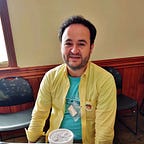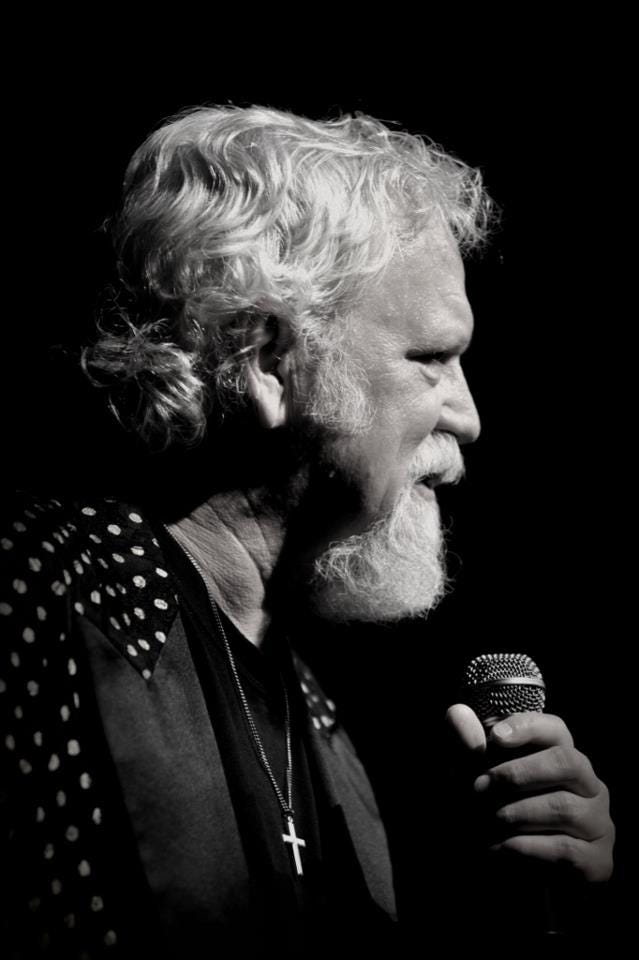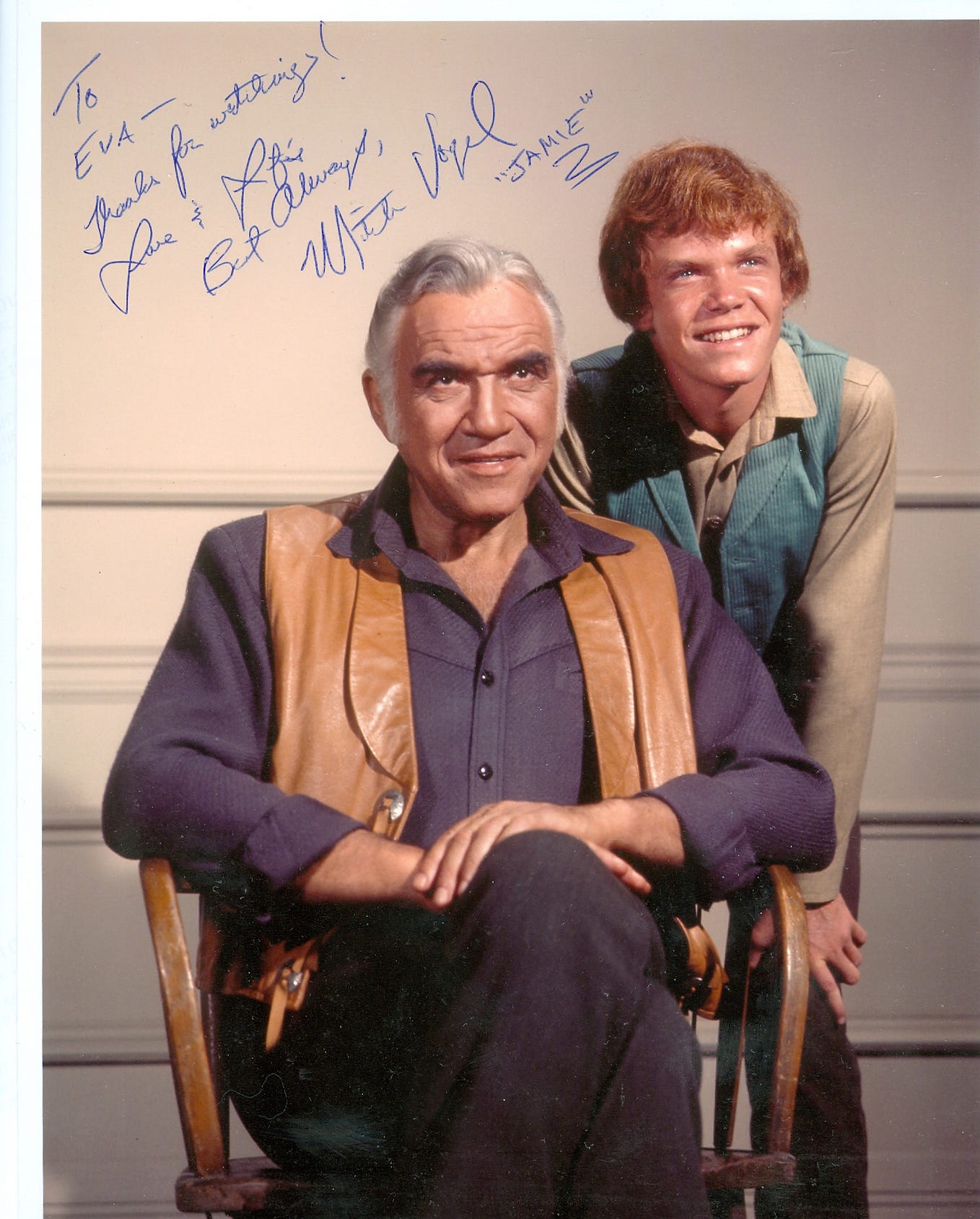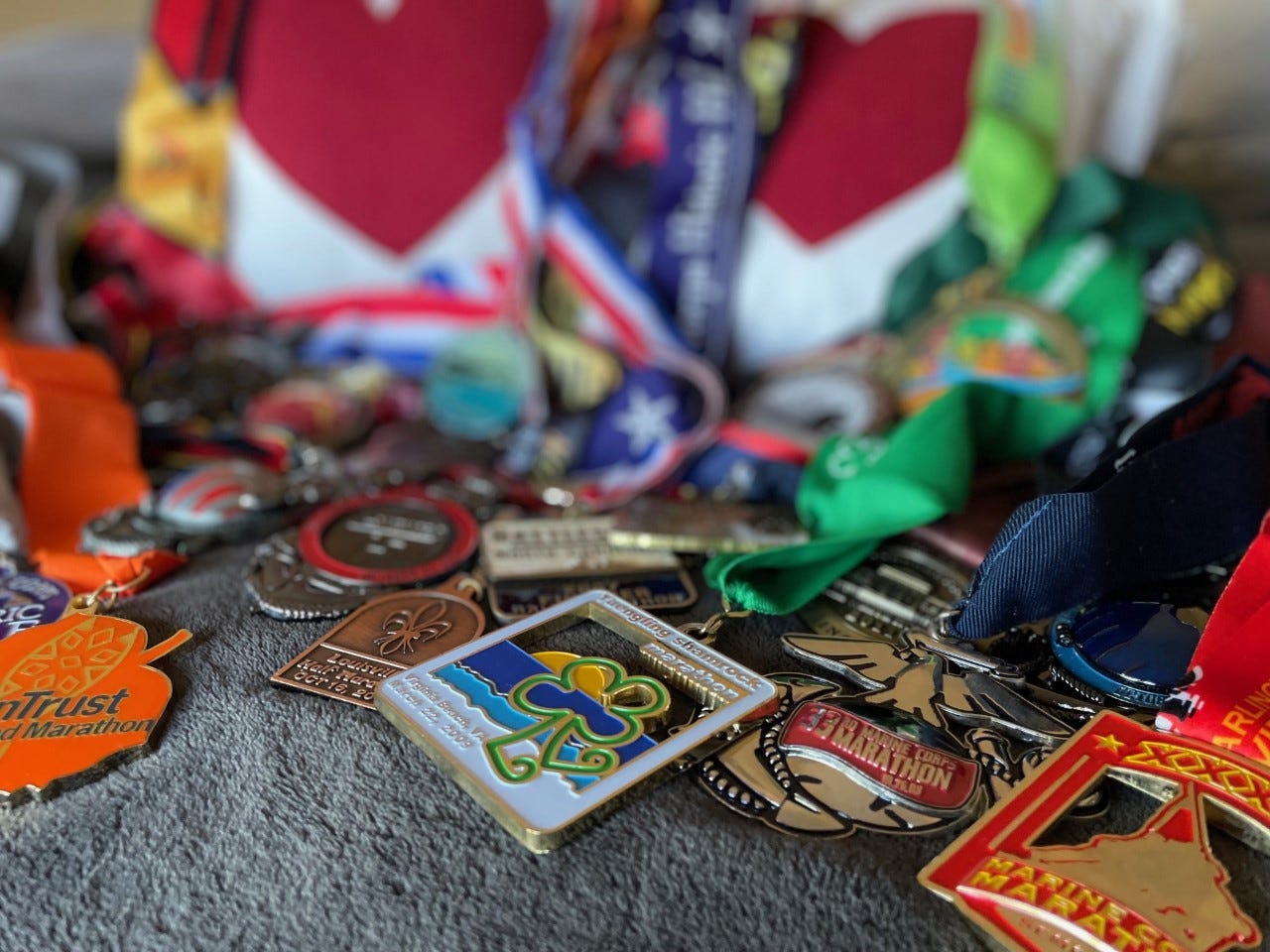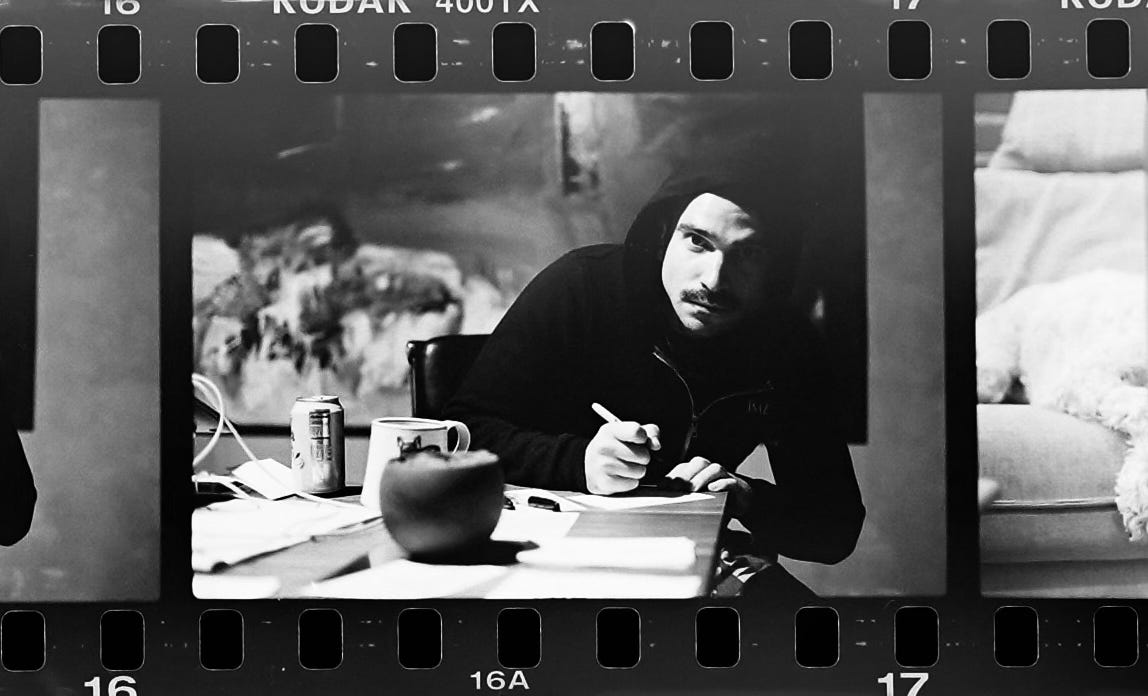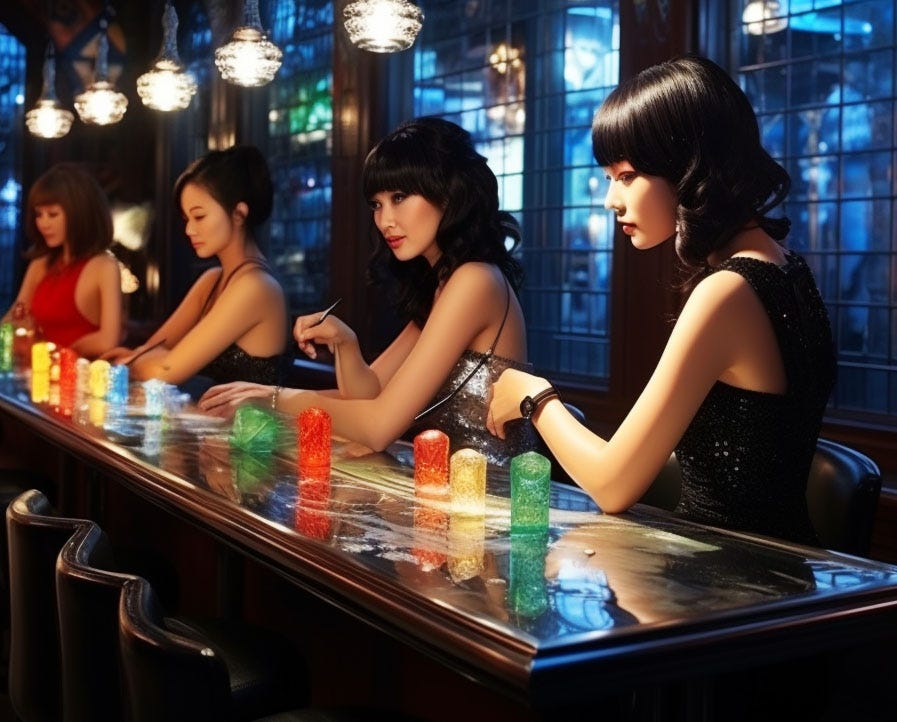More than Bret Maverick’s brother: Remembering Jack Kelly, a proud father, nice guy and darn fine actor
Best known as “Brother Bart” to James Garner’s “Brother Bret” on the inimitable western series Maverick, Jack Kelly was a gifted thespian whose droll self-mockery enriched many a scene.
A knack for playing ne’er-do-wells who ultimately made the right decision after a bit of prodding completed the package. And of course, his amazing onscreen chemistry with Garner was lightning in a bottle.
A sensitive and private person in real life who loved to meet his fans, Kelly was in show business right from the start, modeling in baby ads for Ivory Soap and most any product that caught the attention of his bona fide stage mother Nan Kelly.
The supremely handsome actor eventually became a contract player for Universal Studios during the early ’50s, honing his craft in westerns, dramas, period romances, and comedies. A supporting role as one of Audie Murphy’s war comrades in the 1955 blockbuster To Hell and Back gave the actor his most exposure up to that point [Jack’s elder sister Nancy Kelly received a Best Actress Oscar nomination for the notoriously unsettling Bad Seed one year later].
While Maverick made Kelly a household name in 1957, the experience unfairly typecasted him as Bret Maverick’s brother for perpetuity. Kelly was the sole star when the innovative dramedy ended its five season run in 1962.
Choosing not to pursue a film career, he appeared in numerous stage productions across the country, hosted game show Sale of the Century, and maintained regular guest appearances in such TV shows as The Lucy Show, Batman, The High Chaparral, McCloud, and Hawaii Five-O. Kelly always gave 110 percent to any role he committed himself to even when his film and television workload began to diminish by the late ’70s — and many of those projects were undeserving of his fine talent.
Watching Kelly in any of his 112 roles, it becomes perfectly clear how natural his acting sensibilities were. Whether self-consciously or not, the star regularly stole entire scenes from his costars, sometimes just by adjusting his cowboy hat or staring intently at a pretty girl with his evocative brown eyes. Without a doubt, women loved him, and men wanted to be him.
A kind man who would give a stranger the shirt off his back, Kelly never forgot his roots. And when he became a father at age 44, the actor experienced a new lease on life. Nicole, his only child, imbued him with a sense of fulfillment that no movie role ever could.
The shattered presidency of John F. Kennedy had a major impact on the cowboy’s early political idealism. Becoming one of the first actors to enter politics, Kelly ran for mayor of Huntington Beach, California, in the mid-’80s. Appropriately, his winning campaign slogan was “Let Maverick Solve Your Problems.”
Largely ignoring the early symptoms of a congenital defect in the veins of his brain, the practicing city councilman suddenly passed away on Nov. 7, 1992, at age 65 of a massive aneurysm. Fans from all over the world mourned a true gentleman who never took himself very seriously and did things his way.
Nineteen years after his untimely death, the first biography devoted to Kelly’s often entertaining life and career miraculously arrived on bookshelves. A Maverick Life: The Jack Kelly Story, meticulously researched by Linda Alexander, was written with the full support of the actor’s family. In addition, the 374-page tome features many never-before-seen images sprinkled throughout the text.
Alexander graciously sat down for an extended interview detailing her lifelong fascination with the “Candy Ass Cowboy” [to quote widow Jo Ann Kelly]. Hang around to learn about the actor’s quintessential Maverick episodes, the ongoing Bret versus Bart debate, how Garner’s contract negotiations with the network affected his costar, whether the two were friends in real life, the crucial choice that Kelly had to make after Maverick evaporated, why the actor stuck firmly to his self-imposed rule that he wouldn’t play a character being cheated on by a woman, whether he would have returned to the silver screen, and his vast legacy.
The Linda Alexander Interview
How did your fascination with Jack Kelly begin?
I was approached by a friend who knew Jack’s widow, Jo. He was aware I wrote books, particularly about classic entertainment figures, and suggested that Jack’s story might make a good book. He facilitated the introduction with Jo, she and I got along famously, and I decided Jack’s story was not only book-worthy, but there was so much about him no one knew.
I was born in 1956, so I really didn’t remember Maverick from real-time — though I very well may have watched it as a little child — but as all this developed, a recurring image of Jack would go through my mind…standing tall, head cocked a bit to the side, cowboy hat sitting jauntily on his dark hair.
In this fleeting mind-game, he always wore a ghost of a half-smile and had one raised eyebrow. Not exactly sure why, but it was as if his persona called to me. And in a more logical vein, I’d begun some market research and found there was a solid audience out there more-than-interested in Jack’s life story.
Bottom line…he was a handsome cowboy and I had a thing for handsome cowboys of yesteryear. After I got to know his widow and his daughter, I was hooked.
His family is delightful, and they were thrilled that Jack could finally have his day, with his story brought to light. That image which continued to go through my head was likely one I recalled from my little-girl days when I had likely seen him on TV.
Later, with all my research, I learned that the specific look I recalled — especially that slight grin and cocked eyebrow — was one he had intentionally cultivated as a student with the Universal Talent International School. He’d been taught to look at the camera in certain ways to engage his audience. Obviously, it worked, and continued to work throughout the decades since.
Was your research process into Jack’s life and career difficult?
Researching Jack was a challenge. A good portion of his life was lived in the public eye — TV, movies, and later, California politics — but there had never been anything definitive written about him.
Details were scattered and buried in time. I had to dig up as much detail as I could, and then find living individuals who could corroborate, or debunk, what I found. It boggles my mind to think of how time-consuming this process would’ve been prior to the internet.
I wrote in those days; in fact I began my Robert Taylor research (Reluctant Witness: Robert Taylor, Hollywood, & Communism) before the Internet came into its own, but as undocumented as even Robert was in the grand scheme of Hollywood biographies, there was still a mass of written material on him. He’d been mentioned in books about other stars. There were articles and fan magazine pieces, and many star comments. That gave me a basis upon which to work.
Jack was different. He’d been something of an enigma all his life. While he was on Maverick he’d been fodder for fan magazines, as well as gossip columnists. That was the ’50s and ’60s; when he was spotted with a beautiful woman — his wife, May Wynn; sister, Nancy Kelly … or someone else — it made news.
But he’d worked in entertainment since almost the day he was born. Literally. There were 30 years before Maverick, and 30 years after Maverick which needed to be included. Earlier years were the hardest because Jack told no one about his early years. Who knew he came from a vaudeville family? Not even his daughter and widow knew that before I dug up the details.
I was fortunate to have full cooperation of his daughter, Nicole, his widow, Jo Kelly, his first wife, actress May Wynn, and Peggy Cantwell, his significant other between May and Jo. These ladies helped fill in blanks to give me “jump off” spots to figure out where to go next.
Without these cornerstone people, and a few male friends in whom he somewhat confided, I’d not have been able to do his story justice. Research and investigation came from the details they offered and from there, I put together pieces of the life of the somewhat mysterious Jack Kelly. He really was a bon vivant.
It took a number of years between research, writing, and final publication. To be fair, that wasn’t only due to the story. I was diagnosed with Lymphoma in the middle of all this, and some of that time became rather unproductive. Chemo has a way of turning the brain into uncooperative mush.
I completed chemo in February of 2011, and the book was published by BearManor Media, a great publisher, in November of 2011. They, along with Jack’s family, gave me the space needed to get through it all and still do the book justice.
A classic definition of a stage mother, how would you characterize Nan’s relationship with her children?
I believe Nan truly loved her son. She truly loved her daughter, actress Nancy Kelly, as well. Nan was simply a difficult woman. From all who spoke to me about her, the most logical thing I can say is that life didn’t turn out as she might’ve originally hoped and planned.
I feel as if she wanted to be the star. She came from a vaudeville family. Her husband had some experience, as well, and Nan wanted those lights to shine on her. That they didn’t, well, she channeled her disappointment into her children.
It wasn’t a matter of not loving them. It was more about transferring her lost dreams into her offspring. Over the years, her relationship with Nancy seemed relatively copacetic — at least on the surface. That may have been due to the same-sex benefit.
Under that surface, though, there was a lot of drama and tension. Nan and Nancy had a considerable amount of strife between them over the advancing years. Jack appeared to be a bit more patient with his mother as he got older, yet still, he wasn’t always that way.
Even having his mom live with him when he was relatively newly-married to Donna was a trial…and he made no bones about that being known. His relationship with his mother was strained but nonetheless, she was his mother and he loved her.
Was Jack resentful of being introduced to show business at such a young age [e.g. modeling while still an infant]?
He never seemed resentful. One must remember that Jack really knew nothing else. He loved to be in the limelight…whether as a result of being there from such a young age or simply part of his natural personality — or likely, a bit of both.
Regardless, business came naturally for him. Even after major stints in front of the camera slowed down, still Jack continued in that vein. Other actors, as they aged or lost favor or for whatever reason were no longer “box office,” so to speak, went into professions behind-the-scenes, utilizing their celebrity to make that move.
While Jack did that when he moved into politics, politics is certainly not always behind-the-scenes and in some ways, a similar profession to entertainment. He remained on a stage, performing his job in front of a public audience.
Jack’s elder sister, Nancy, was a bona fide star during the Golden Age of Hollywood. Until Maverick arrived, Jack had to constantly endure being dubbed “Nancy Kelly’s brother.” It is a shame they never worked together.
It is a shame they never worked together. They talked about possibilities, and even did some early-on brainstorming, but it just never came to pass. I don’t believe Jack ever resented his sister for her place in Hollywood. She was an older sister, and naturally began earlier than he did. Jack was close to his sister, in his own way, and she was important in his life.
Why was Jack such a natural in the Western genre?
That’s the funny thing. Jack didn’t start out anywhere near being the western sorta guy. He was a city boy, born and bred. Can’t get much more citified than New York City. He in fact, early on, was wary of Westerns, not considering himself the type to make that genre work.
Universal, however, required that he learn how to ride horses — his big joke was that, prior to his experiences with Universal, his knowledge of “the range” was the one in the kitchen. And he found he enjoyed riding, and did well.
When Maverick came his way, he seemed to take to it automatically. One could say he was a natural once he got the hang of it. Or, just as likely or even more so, one could say he was simply that good of an actor. He made it look like he was born in that time period and lifestyle. Indeed, he was quite the card player, but that simply enhanced his Maverick image.
How do you feel about the Bret vs. Bart debate? Was Jack unfairly brushed aside in his portrayal of Bart?
That’s put in an interesting way. It has become a debate … started in real-time which has never gone away all these years later. I believe the debate was intentionally encouraged back in the day. All evidence points to the idea that the “powers that be” didn’t want a second actor. Plus, the sponsor didn’t want a second actor.
To be fair, the show wasn’t originally planned that way so that’s logical. Yet when it became obvious the show wouldn’t survive with only one star, their responsibility was to make it work. In bringing in another starring actor — after much debate — it would’ve seemed fair if both men received an equal shake.
But Garner was treated as the star, and Jack as an after-thought, necessary but bothersome. Even after Jack proved his merit and the volume of his fan mail evidenced the public’s acceptance of him, there seemed to be front office irritation over him being seen as anything more than simply a prop for Garner.
My book tells what it was like in the Kelly home when Maverick came Jack’s way. In that first phone call, it was suggested that he’d be Garner’s support, though considered a “star.” Jack and his wife, Donna, didn’t care for that.
When Jack went in for the official meeting, he was shown an intro mock-up … his name in smaller type than Garner’s. He made it clear he’d not sign the contract if he wasn’t shown on equal footing.
It almost seems — my assumption, not anything documented as fact — that because he ensured, contractually and legally, that he got equal billing, the front office made their point in other ways…publicity photos, dialogue digs, doublespeak, and crucially important, a salary never equal despite the official equal billing.
Ever notice how short Jack appears alongside Garner? When I first began research, I was literally shocked to find he was tall, and physically solid. Every professional photo I’d ever seen of the men together gave an impression that Jack was rather puny, and Garner was a giant.
Yes, Garner was the tallest. He is a big man. Yet there were but a few inches difference. Garner was officially 6’3”. Jack’s height was 6’1” according to family, and not physically slight … well-built and trim, but not unassuming. Figuring these heights as correct, that’s only 2 inches, both over 6 feet.
I see this as another example of trying to lessen Jack’s physical imprint. One script, in particular — not even counting how photos were staged — referred to Garner as “the big one” and Jack as “the little one.”
Jack has always seemed to have more female than male fans. Garner was the man’s man. These days, while Jack has male admirers, and there are men who appreciate his contribution to Maverick, an overwhelming number of fans are still women. Scan the internet. There are men who heap praise on Garner, and have little good to say about Jack.
The good news is that Jack is now a topic of discussion. Maverick is a topic of discussion. Garner is a topic of discussion. These questions will arise again and again, and that’s a good thing.
When Garner began his contract negotiations with Warner Bros., how did this affect Jack?
Jack was a practical man, insofar as his career was concerned. He was under contract, and he was working. That was a strong argument for him to not rock the boat.
On the other hand, he’d always felt as if he was somewhat on the lesser end of the overall seesaw with his higher-ups, and the idea that he might be able to better his status — financially and professionally — tempted him.
As I mentioned in the book, he did go on strike with Jim Garner early-on. He was offered more money and once it started to become obvious that Garner might not come back, Jack knew his standing with the show would move up a rung. The whole thing seemed to wear on him considerably.
Based on interviews and information I found, I’m sure Jack really wanted Maverick to work, and he believed Warner Bros. when they promised him the moon at that point…which they did. So, he went back. The studio didn’t really play fair with him. And the rest is history…
So, were they friends in real life?
They were friendly in real life but not buddies. They did not socialize to any measurable degree. Theirs was a complicated relationship. They got along well. They had extraordinary chemistry. That this question is posed all these years later speaks to that chemistry.
It’s hard to believe Jack and Jim were anything but best friends because when they were on camera together, their interactions were seamless. I liken it to a pair of brothers who may have been raised in different families.
They clicked naturally, as if there was a connection as a result of nature. Yet because they didn’t want the same things, didn’t care for the same sort of lifestyles, they didn’t mesh on a deeper level.
Jack and Jim had vastly different lifestyles. Jim made no bones about the fact that he did not like Jack’s first wife, Donna, and he didn’t like the way the couple socialized, and they socialized a lot. Donna didn’t particularly care for Jim. Such differences couldn’t bode well for interactions away from work.
Yet when they were in that work environment — on set, between takes, during promotional events, the like — Jack and Jim enjoyed each other’s company and watched each other’s back. They did care for each other in real life.
What are some of Jack’s best Maverick episodes?
If you visit my Jack Kelly fan page on Facebook, you’ll see that Jack’s admirers would say any episode in which Jack starred is one of his best. I say that only slightly tongue-in-cheek. In fact, I queried his many fans, and here are some of their answers:
‘Prey of the Cat’ [broadcast on Dec. 7, 1958] — Janet Theador enjoyed “seeing Jack’s serious side and how well he acts. The scene at the end, the attempted hanging, still gives me a chill.” Patty Miller Clayton also liked this one because of Jack’s “serious acting skills.”
‘Two Beggars on Horseback’ [Jan. 18, 1959] — Becky Landis thought this episode “showed how the Maverick family tended to run. Competitive and sneaky, but always loyal to each other and willing to drop everything to help each other.”
‘Passage to Fort Doom’ [March 8, 1959] — Gary Portillo remarked that “We see his playful side with Cindy Lou Brown [portrayed by actress Arlene Howell], and we also get to see his serious, sophisticated side in the way he handles the young Charlotte [portrayed by Diane McBain] as well as the battle against the Indians as he leads the wagon train.”
‘The Goose-Drownder’ [Dec. 13, 1959] — Melissa Snyder admitted that “Jack shows so much range…he has the usual action, comedy, and romantic scenes, but there’s also suspense, medical drama, mystery, and film noir thrown in for good measure. On top of it all, in one scene he lays his soul bare, and in the next, makes a plausible case for it having all been an act.” Geri Ann Sefton also gave this episode high marks, saying it was “almost like a filmed stage play.”
I answered your question this way so as to interactively involve Jack’s fans. They have wholeheartedly supported him, and this book, and it’s important their voice be heard whenever possible.
Would Jack be surprised that he is not on the cover of the official first season DVD of Maverick?
Only supposition, of course, but I doubt he’d be all that surprised. After all, he fought the battle for recognition throughout the show being on the air, and even for years afterward while still in Hollywood. In those days, he was most often seen as secondary to Garner — through no fault of his own — and since his death, there’s been little effort to raise his profile to his rightful place.
It’s my hope, and intent, that we can bring a lot of attention to Jack between now and then, and after…enough so that when Warner Bros. gets the drift, Jack will be as remembered as a Maverick brother as is Garner. Then Warner Bros. will release subsequent season DVDs to include mention, and photos, of “Brother Bart” [Author’s Note: Fittingly, Kelly and Garner shared equal space on the second season DVD cover of Maverick].
What were some of Jack’s best movie roles?
Jack had quite a resume, not only in TV. He certainly deserves credit for his movie work. Whenever anyone does mention what he did on film the first usually brought to mind is Forbidden Planet [1956]. He enjoyed working on that set and was sincerely disappointed when his expectations, from what he’d been told when he started, didn’t come to pass.
Forbidden Planet may have been something of a work before its time in the sense of how so much was anticipated for it, but many of the ideas were shelved because of budget constraints. Jack’s work has lived on in spite of the fact that his character was cut from the movie before the end … which was not in the original plan, and that fact sorely disappointed him.
Jack also enjoyed making Sally and Saint Anne [1952, costarring Ann Blyth, Hugh O’Brian, and John McIntire]. The subject matter was intimately familiar to him — growing up in an Irish Catholic family. This was material he knew a lot about, and the set, by all accounts, was a fun place. A lot of young actors just starting to make their way, and Jack was one of them, and all seemed appreciated for what they could bring to the finished product.
Jack did an excellent job as the lead actor in The Night Holds Terror [1955, costarring John Cassavetes]. The producer said about him, “He came in, picked up the script and read it cold without excuses. It impressed me.” The movie was based on real life, and an interesting story which didn’t make it into the book — I heard it after-the-fact — was related by Jack’s widow, Jo.
She told me that one day when they were living in Huntington Beach, a repairman came to their house. When the repairman realized that was Jack Kelly’s home, he was flabbergasted. Apparently, the story for The Night Holds Terror was based on the guy’s father.
The little-seen Hong Kong Affair [1958] was another film which Jack took seriously, even though its splash on the screen has been noticed more as a work he’s remembered for, rather than one for which he received high praise in real-time.
The back story to the making of this movie was more complicated than anyone would’ve imagined had Donna not been able to shed light on everything that occurred just to get the movie to the screen. Jack and Donna paid a high price in terms of their personal lives to do that movie…details which are, of course, in the book.
It seems that some of Jack’s movie work was under-appreciated in its time, yet has received pointed attention in current day. Though it came at the end of his Maverick days, the short film Freedom and You aka The Commies Are Coming aka Red Nightmare [1962], has become something of a camp classic.
It’s so dated, and so much a piece of propaganda that it really holds its own today as a memorable piece of work, without ever intending to be much of anything in its original intent. That one included a lot of high-visibility ’50s and ’60s stars, and has a lasting place in B-type films for that reason alone.
Why did a film or television career never really take off for Jack after Maverick ended its five season run? In hindsight, was it a mistake for Jack to return to the theatre so soon after the series ended?
Jack had a choice after Maverick ended. He was offered many “B” movie options, and if he’d chosen that route, he probably would’ve left many substantially-remembered film roles but that wasn’t what he wanted as his legacy.
He said so, and took the other route. He’d been a stage actor before he was a movie or TV actor, and it was natural for him to go back to stage life. He genuinely seemed to love the stage even more than being in front of a TV camera. The immediate audience interaction, hearing applause, direct interaction with an audience…these things were dear to Jack.
Was it a mistake for him to return to the theatre so soon after Maverick? I don’t think so. If Maverick had come to him as a very new actor, before he’d had a few test tries at superstardom, he may have made different decisions but he got that opportunity after he’d tested the waters for a number of years. He knew the business intimately, and felt he knew what would ultimately work best for him, his career, and his life in general.
The bottom line…we’re sitting here all these years later, talking about Jack Kelly, co-star of the iconic Maverick TV show, and pages of other credits, as well as a becoming a celebrated California politician. Jack did just fine.
Jack’s self-imposed rules about westerns after Maverick ended were: He wouldn’t play anyone’s brother, he wouldn’t play cards, and he wouldn’t accept a role where he was cheated on by a woman. Could you elaborate on the latter “rule?”
It’s my belief that the “being cheated by a woman” rule was based on Jack’s experiences in love. He was a sensitive man and a lot had gone on in his first marriage, as well as his almost-marriage prior to Donna.
As indicated in the book, there is absolutely no evidence that Donna ever cheated on him. The almost-wife? That’s up for debate. Still, even though he was proven to be a one-woman man, when he was finished he was finished, and he moved on.
Everyone who knew Jack and Donna as a couple, even Jo Kelly, has said he was head-over-heels for her. He made that “self-imposed rules about westerns” statement at a point when their marriage was on the downslide. Seems he had some deep emotions going ‘round in his head, and his heart.
Why did Jack’s second wife, Jo Ann Smith, nickname Jack her “Candy Ass Cowboy?”
He was a cowboy because of Maverick but in truth, he was a city boy. And he was hers.
How did fatherhood change Jack after his daughter, Nicole, was born?
Having a child completely fulfilled Jack. He’d wanted to be a father since he was a very young man. Marriage to Donna gave him hopes that children would soon be in his future. They both hoped for that but it never came to be. That seemed to be the end of that.
When he married Jo, he had a second chance. Nicole was born in 1971, and he was over-the-moon. His biggest dream had come true. He was a father. How did that change him? It’s no overstatement to say it made him a better man. Fatherhood gave him an anchor.
Nicole was literally a part of him…and that his child was female, a daughter, I think was divine justice. The father/daughter relationship which grew between them enhanced his life, in great part because Jack nurtured the depth of that relationship by being an adoring parent, and in part because Nicole responded so readily to his obvious love for her.
When did Jack first become interested in politics, and what were some of his greatest achievements in that arena?
Jack’s entrance into politics may seem to have been less of a big deal simply because he went into local politics, and stayed in local politics. He never even flirted with the national arena.
If you ask anyone in the Huntington Beach area, even to this day, most will give you a knowledgeable response to the question, “Who was Jack Kelly, and what did he mean to the area?” He did business all over town, all day — his favorite booth in local restaurants with a phone at the ready for him, council meetings with Jack making his opinion known, and glad-handing just about everyone of voting age…as well as kissing a lot of babies.
He was politically-aware early in life. When married to Donna, he skipped alongside national politics when he did his thing for John F. Kennedy. He fell hard for Kennedy. I’d have to say that if there was a defining moment which gave Jack his political wings, it was during that Kennedy period.
As for his greatest political achievements, Jack simply enjoyed the process. He felt he represented the common citizen and he believed in the revival of his beloved Huntington Beach — giving it a more commercial appeal as a destination while not ruining its initial small-town flavor.
His opinions were well-known around town. He loved the idea of developing properties, and he and Jo made an excellent business team. He’d do the wheeling-and-dealing, and she’d seal the deals, run the properties, and take care of the money and everyday business side.
Why did Jack have such a strong bond with President Kennedy? Donna actually said their marriage began to unravel after Kennedy’s assassination.
Truthfully, I can only surmise. Not even Donna, the one person who knew of his dedication to Kennedy in person in those days, could give a logical answer to this question. Maybe it had a lot to do with the depth of his Irish family upbringing, something he shared in some ways with Kennedy.
Or Kennedy’s unabashed Catholicism…a belief system they also shared. Jack was born a Catholic, lived many of his years as a practicing Catholic, and despite his divorce, seemed to always believe in the Catholic ideology.
His bond certainly had much to do with Kennedy’s ideals and what he wanted to do for the United States and, overall, the world. Jack’s entire life evidenced his desire to make a difference…somewhere, somehow, in some clear-cut fashion.
He did that with his work in front of a camera, but his early idealism in those Kennedy days followed him throughout and came to a sort of fruition in his life as a California politician. He made a difference in the lives of the people in Southern California, and California — period.
That seemed to fulfill him in ways acting may not have, at least not completely. That desire appears to have taken root during the Kennedy days. And, as Donna did say, that was a volatile time in American history. Many Hollywood actors were there front-and-center for that political scene. Jack was intent on being a part of that larger voice.
Donna’s commentary about the unraveling of their marriage as it related to the Kennedy era was a commentary on the bigger picture of life in that timeframe. They had so much of themselves wired into that scene — as Hollywood types and as idealistic Americans — and when Kennedy was assassinated, she felt that a lot of the fire went out of that connection they had…together, and for the lives they were leading.
It was something they no longer had to share, and as a couple who shared almost everything, one moment in time which, in retrospect, signified the unraveling of their joined history. There were a number of concerns going on between Jack and Donna at that point. Kennedy’s assassination was somehow the “moment of truth,” if you will.
Did Jack consider writing his life story?
There is no evidence Jack ever considered writing his own story. He and Donna did write a cookbook together — he was a superb cook and loved to be in the kitchen — but it never came to fruition, and no one at this point knows where the manuscript ended up.
In the late 1950s, Jack began a novel called Nothing So Deadly, which reportedly was sold to Doubleday before it was beyond manuscript form…it may have not even been beyond concept, for that matter. Solid research has not yet dug up any remnants of that book, either in written form or even anyone who could tell me anything about it beyond a few notations in gossip columns.
How did you become a writer?
I have been writing professionally since the late 1980s. I began with interviews of local bands, and sold those to our town newspaper. Then I did some pieces for the same newspaper about national acts which were coming to the area.
It occurred to me at that point…if I could do this for a local publication, I could likely write much the same pieces for national publications. I started doing interviews with soap stars from my area who’d come home for events, and then I’d sell revisions to Soap Opera Update.
I got the hang of it and from there, found new markets for my articles. My focus always came back to entertainers — usually classic entertainers (actors and musicians), as well as soap stars and contemporary Christian musicians. A good representation of some of these earlier pieces can be found at http://www.authorsden.com/lindaalexander.
What kinda hobbies pique your curiosity?
I’m addicted to genealogy, in my words, “digging up dead people.” We can’t make up the stories that have already been lived, and when those lives belong to people from whom I descend, there’s a fascination attached which is like a natural high.
It’s a similar feeling to when I write about entertainers of yesteryear…these are stories which otherwise might be lost to time, and I believe they — those who were well-known, and my ancestors — want their stories told. Somehow, some way, they select me to do the job…and I’m truly honored. Call me crazy, you won’t be the first, but I have voices in my head 24/7, and when they talk to me, I always talk back.
I also do a lot of photography. My husband is a pilot — he’s recently built his own plane — and I’ve been known to fly with him and take pictures from the air. That’s an entirely different perspective on life!
I love to travel. Most of my trips are booked around genealogical searches, and/or book plotting/promotion. Always a good excuse to visit a new locale.
Actor Steve Ihnat was arguably the most active television guest star and character actor throughout the 1960s and into the early 1970s. His credits covered virtually every show in production. He was making a solid $80,000 a year. He was one of those faces anyone and everyone who watched evening TV recognized even though they may not have known his name.
In May of 1972, Steve went to Cannes, France to drum up distribution support for Do Not Throw Cushions in the Ring, a film he had written, produced, and in which he also starred. Most Hollywood insiders knew who he was and expected great things from him.
Just days before he was to leave Cannes, he died of a sudden heart attack at the age of 37. The promise of his talent was never to be realized. Why did I decide to chronicle him in The Life and Death of Rising Star Steve Ihnat — Gone Too Soon? Because I saw him on TV one night, on The Outer Limits two-parter, “The Inheritors” [aired November 21, 1964 via ABC]. I couldn’t look away. I felt as if I knew him, even though I was not even 10 years old when that came out. I had to find out more. As usual…the actor himself drew me in.
At the beginning of each chapter, a “Kellyism” appeared. So, what exactly is a Kellyism?
Jack had a humorous and oh-so-unique way of saying just about anything he was thinking at any given point in time. He often didn’t censor himself, which led him into a few “oops” moments, but folks knew it was simply Jack’s way of expressing himself and usually he got a pass.
Most often that was because folks who knew him knew he was simply coming out with a “Kellyism.” And the folks who didn’t know him well ultimately also let him slide because he was so darned charming. Some of my favorites include the following:
- “I have never found recognition and admiration hard to live with. It’s only the lack of it that bothers me” [circa 1960].
- “Money still talks, but these days you have to increase the volume” [circa 1960].
- “A reptile certainly raised old Ned in the garden of Eden but one heck of a lot of us have enjoyed apples since that first forbidden fruit” [Jan. 5, 1990].
- “Sometimes concealing is stealing but oftimes revealing” [Jan. 19, 1990].
- “If custom T-shirts were in vogue when the Titanic got crushed, one could have been inscribed, ‘What a dumb place for an iceberg’” [Jan. 26, 1990].
- “An unknown author said, ‘Originality is the art of concealing your sources.’ I’m pretty clumsy at concealing…I’ve never been accused of originality” [Jan. 19, 1990].
In 1973, Jack learned he had a congenital defect in the veins of his brain. Nineteen years later, an aneurysm claimed his life. Why did he refuse to seek proper medical treatment for this condition?
Why do any of us ignore such things? Maybe he thought he was invincible. Maybe he never took it seriously. Or maybe he simply decided if he ignored it, it would go away. It’s been my experience that men often make a point of not liking doctors or going to see them, especially when there is a specific reason to do so.
I would qualify your question, though, by indicting that Jack did, initially, seek proper medical treatment, at least when he first learned of the condition. Jo was there to make sure he did what he needed to do to be well.
Yet you’re right in that he didn’t follow up. There were a lot of other factors in his life at that point — a new wife, a new child, regular work. For all intents and purposes, Jack had a new life, and he just didn’t take the time to return for those check-ups.
When life is busy and seemingly on a steady road, we don’t often think about the possibilities of bad health…even if we’ve been in front of that door before. I don’t think Jack wanted to think about those things. Did he feel as if he might be living on borrowed time, and just let the chips fall where they may? That’s my best bet.
If Jack had not passed away so suddenly, what do you think he would have been doing today? Would he have made a concerted effort to return to acting?
Oh, this is a delightful question! I can’t tell you how many times this very same question has been bandied around on my Jack Kelly fan page on Facebook. With the wild popularity of retro TV these days, and a real focus on westerns in that market, Jack would’ve become a natural on the festival circuit.
Would he have made an effort to return to acting? Probably, but only when it came calling at his door. Like many of his contemporaries — James Drury as The Virginian, as well as Sir Roger Moore, spring to mind — acting was in his blood and he would’ve not likely ever turned away an opportunity to continue in the public eye, on the large or small screen.
However, Jack adored the satisfaction of immediate feedback. That was why he loved and did so well on stage for so many years after his main push on television. He went back to the stage again and again.
I believe with the return of classic western TV shows to general viewing, today Jack Kelly would be enjoying a resurgence of popularity, hitting that western festival circuit, going to city after city and holding court with his fans each year.
Drury is probably one of the best, if not the best, examples of how well this has worked for classic western TV stars. He told me in an interview that he’s as popular today, if not more so, than he was when The Virginian was in its heyday. Jack would likely be right there smiling alongside him, and he’d be having the time of his life.
How would Jack like to be remembered?
As a father who loved his child wholeheartedly. I truly believe he saw the gift of becoming a dad as his crowning achievement. It’s fair to say that Jack considered Nicole his saving grace in many ways.
I’m also fairly certain he’d like to be remembered as a nice guy. Jack tried hard to please people and never intentionally do harm. These are, of course, my personal assessments from all the research I did, and the opportunity to get to know his family well, and I think they’re safe bets.
© Jeremy Roberts, 2012, 2016. All rights reserved. To touch base, email jeremylr@windstream.net and mention which story led you my way. I appreciate it sincerely.
